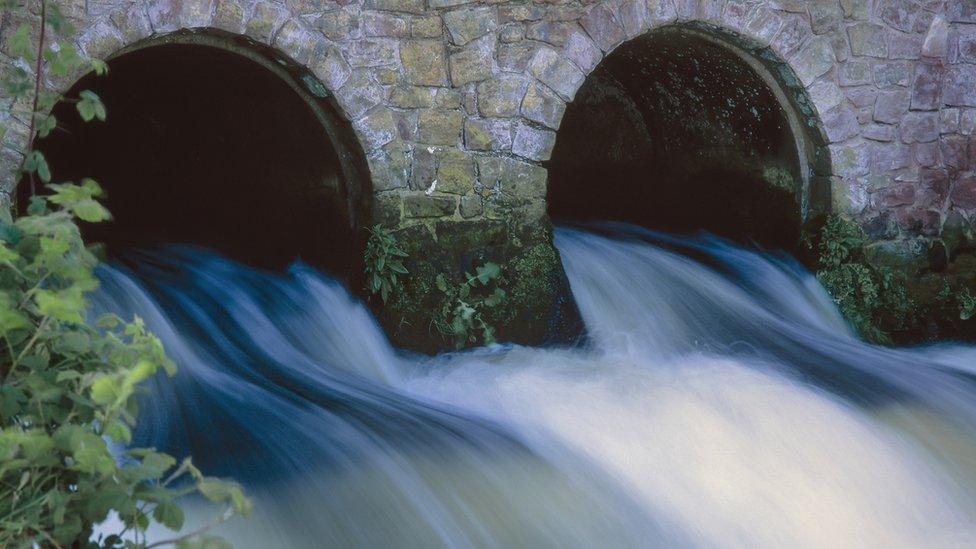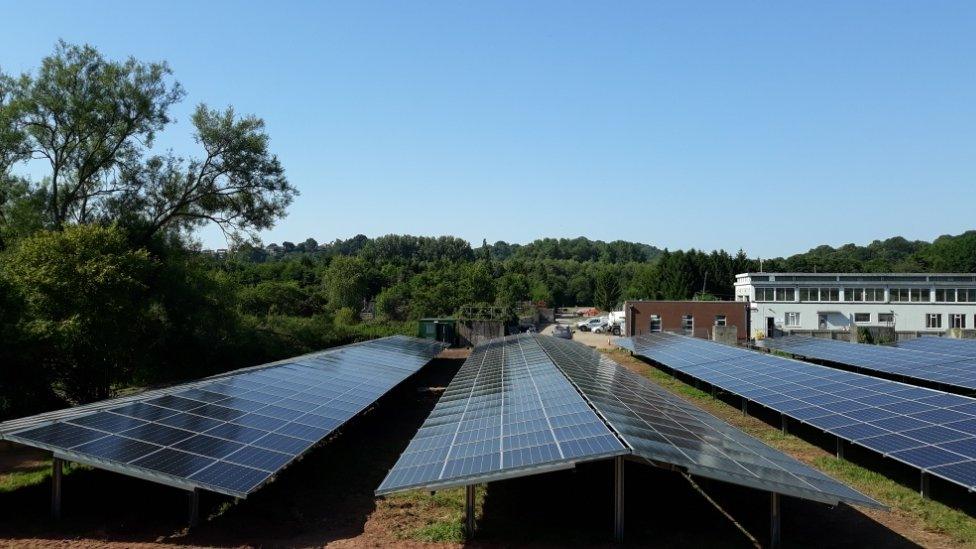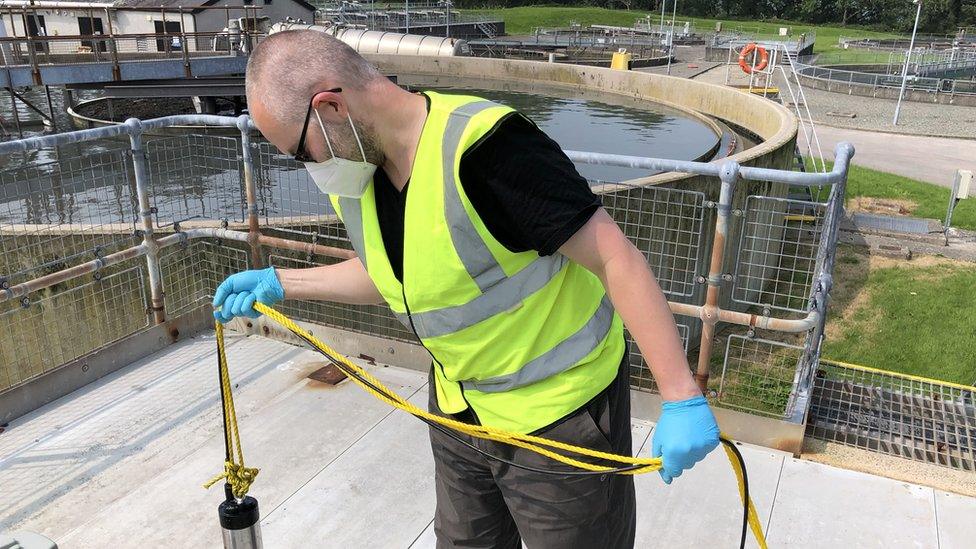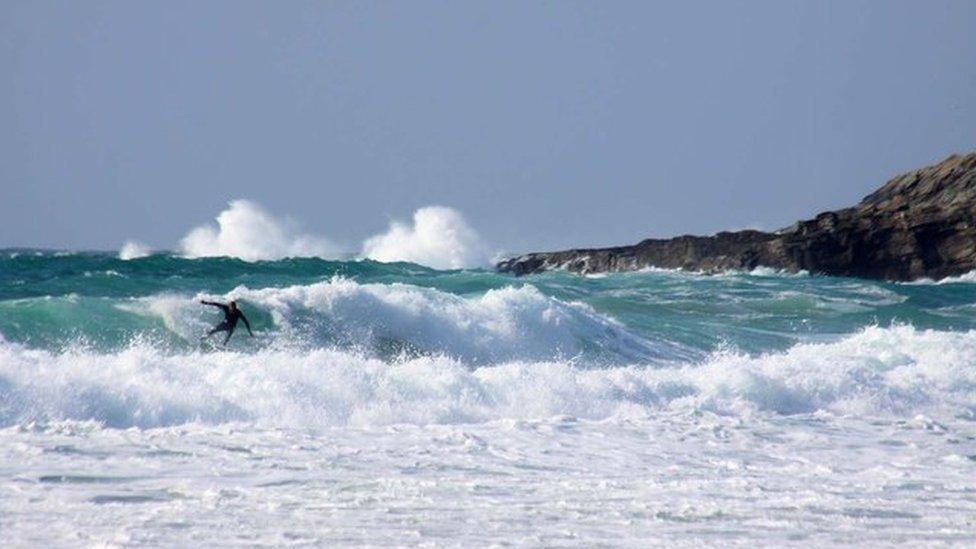Zero emission energy from sewage project gets green light
- Published

Biogas waste from sewage is converted into hydrogen fuel in the project
A project to convert sewage into a zero-emission fuel is set to go ahead in Wales.
It will see biogas waste converted into hydrogen fuel, which can be used to power zero-emission vehicles.
Sewage sludge is a by-product of the wastewater treatment process - producing microbe-rich solid sewage, which can then be used as biogas fuel.
The Make Your Poo Work For You project has been awarded £60,000 by Innovate UK.
Biogas is produced by bacteria breaking down sewage sludge in large tanks and turning it into biosolids (compost type material) and biogas.
Welsh Water, which runs the project in collaboration with technology company Costain and local authorities in south Wales, said most of the energy will be used to produce clean energy.
It is also hoped the technology could be used to power the water company's entire fleet of vehicles with hydrogen fuel - saving around 9,000 tonnes of carbon being released into the environment.
The project will also explore demand for hydrogen vehicles, particularly for council waste collection vehicles, HGV tractors and buses.
Last year Welsh Water agreed a five megawatt connection from Cardiff council's Lamby Way solar farm to Cardiff Wastewater Treatment Works.

Welsh Water's three solar installations in south Wales are expected to produce enough power for 300 homes
Meanwhile, three solar projects in Pembrokeshire, Swansea and Cwmbran, have also been unveiled by the water company.
The installations are expected to save 311 tonnes of carbon dioxide emissions per year and power 300 homes.
Welsh Water's director of environment, Tony Harrington, said their renewable energy projects will help the company become a carbon-neutral business and "one which produces its own energy using renewable sources".
"This sewage-to-hydrogen fuel project is at the forefront of the innovation we need to pursue to meet these ambitious targets - and the funding from Innovate UK will help us on the way to de-carbonising our fleet of tankers."
The water company, which serves more than three million people across Wales, Herefordshire and parts of Deeside and Cheshire, aims to generate all its own energy by 2050.
Related topics
- Published23 October 2020

- Published7 November 2020
